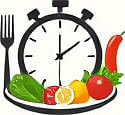Meal Prep Strategies for Mental Clarity
 by Verner Mayer
by Verner Mayer
Discover how strategic meal prep can support mental clarity with nutrient-rich foods and efficient routines. Learn simple techniques and recipes to maintain focus and energy amid a busy schedule, making healthy eating accessible and effective.

Meal prep offers a practical way to ensure regular intake of foods that promote mental clarity. By focusing on nutrient-dense options, individuals can maintain steady energy levels and cognitive function. For instance, incorporating omega-3 fatty acids from sources like fish can aid brain health.
One effective approach is planning meals in advance to reduce daily stress. Start by selecting ingredients that boost mental performance, such as leafy greens and nuts. This method allows for quick assembly during the week, helping busy professionals stay on track.
Consider basic techniques to streamline the process. Batch cooking saves time; prepare larger quantities of grains or proteins once and use them throughout the days ahead. For example, cook a big pot of quinoa, which provides essential nutrients for focus.
Quick recipes can make this even simpler. Try a spinach and egg wrap for breakfast, combining eggs for protein with spinach for vitamins. Mix chopped spinach, beaten eggs, and a dash of herbs, then cook in a pan for under five minutes. Another option is a berry yogurt parfait, layering Greek yogurt with fresh berries and a sprinkle of seeds for antioxidants that support clear thinking.
To optimize efficiency, use kitchen tools wisely. A simple food processor can chop vegetables in seconds, turning a tedious task into something fast. Organize your space by keeping frequently used items handy, which makes preparation feel effortless.
Maintaining variety keeps things interesting and ensures balanced nutrition. Rotate proteins like chicken or beans to include different vitamins that benefit the mind. For a simple dinner, assemble a salad with mixed greens, cherry tomatoes, and grilled chicken, drizzled with olive oil.
In practice, set aside one day for prep, such as Sundays, to prepare components for the week. This routine builds habits that enhance overall well-being. Remember to include hydration; pair meals with water or herbal teas to support cognitive function.
Portion control is key for sustained energy. Divide prepped foods into containers to avoid overeating, helping maintain stable blood sugar levels. Over time, this consistency can lead to improved concentration and reduced fatigue.
For those new to this, begin with small changes. Focus on two meals per week and gradually expand. The satisfaction of having ready-to-eat options can motivate continued effort, turning meal prep into a rewarding routine.
Ultimately, these strategies help integrate healthy eating into daily life, fostering mental clarity and productivity.
